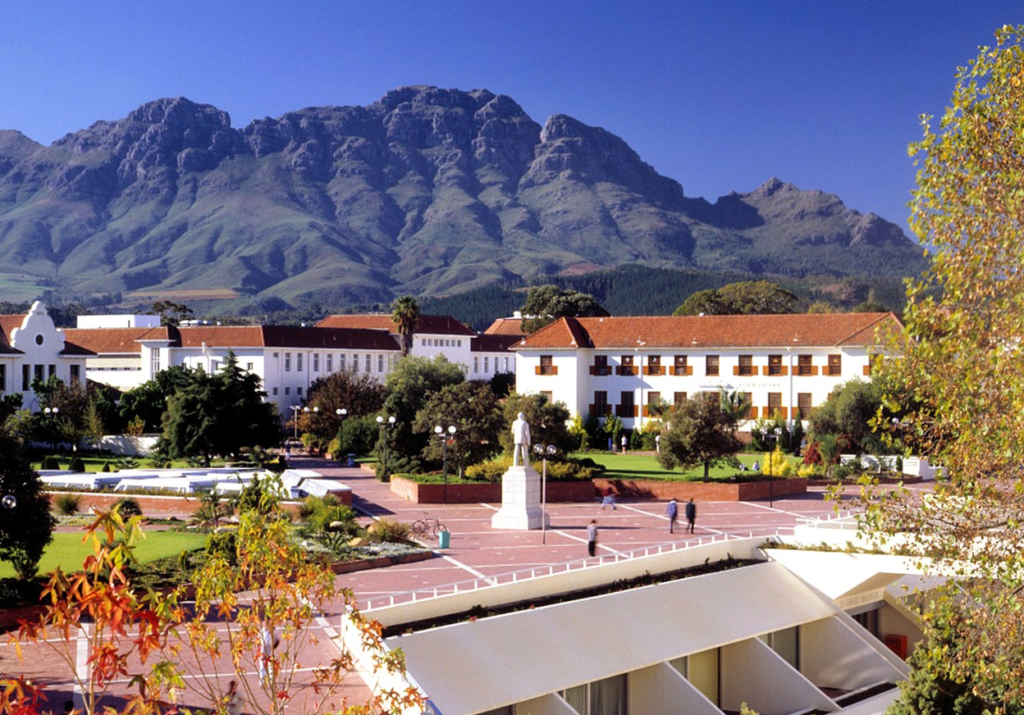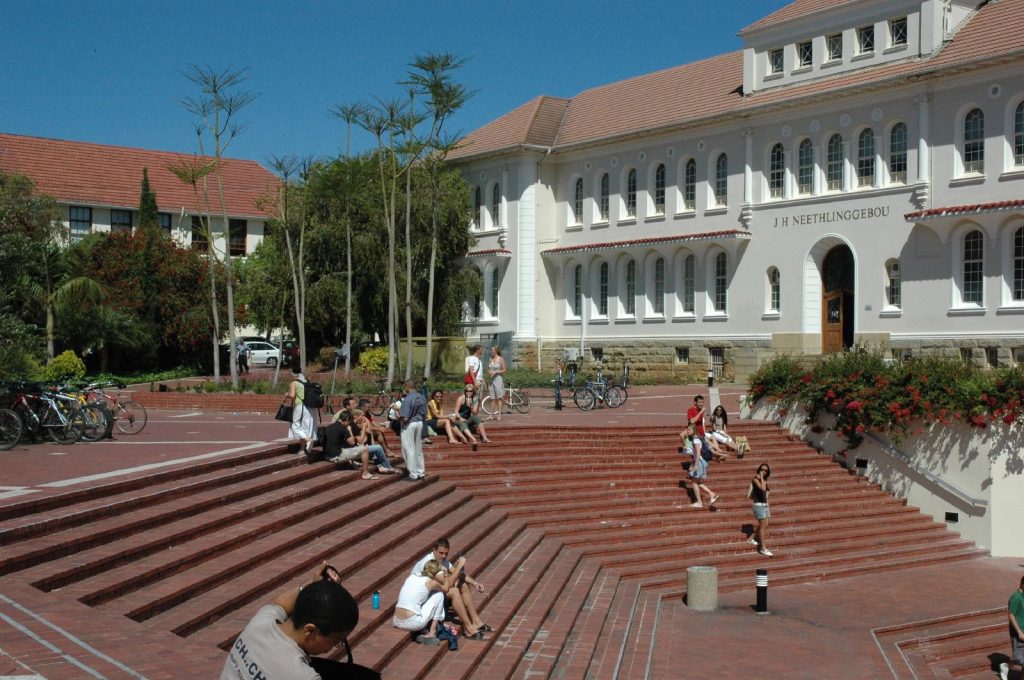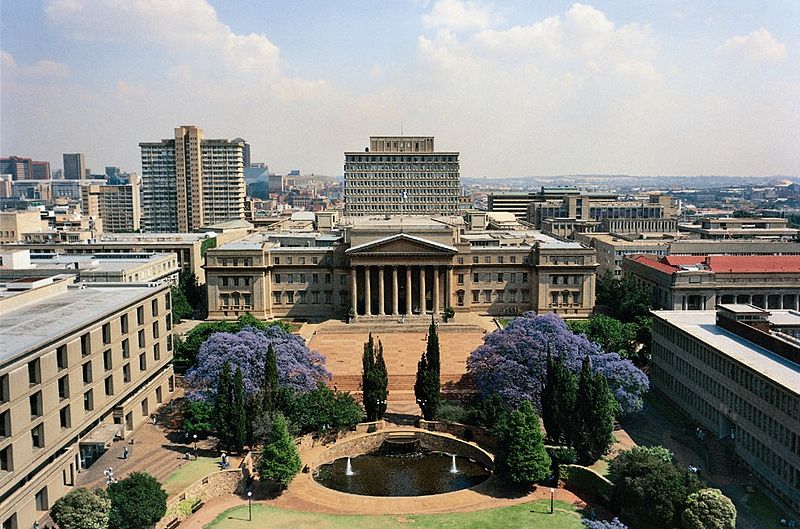University of KwaZulu-Natal, Stellenbosch University, and Wits University: Overview, Requirements, Rankings, and Applications
Overview:
The University of KwaZulu-Natal (UKZN) is a prominent university in South Africa with five campuses located in the province of KwaZulu-Natal. It was established on January 1, 2004, through the merger of the University of Natal and the University of Durban-Westville.
History:
The merger was initiated in 2002, and the university officially came into existence on January 1, 2004. Professor Malegapuru Makgoba, a renowned medical scientist, was appointed as the Vice-Chancellor and University Principal to lead the merged institution. He served as the last Vice-Chancellor of the University of Natal and the founding Vice-Chancellor of UKZN. After his tenure, Dr. Albert van Jaarsveld succeeded him.
Structure:
UKZN is organized into four colleges, each comprising several schools, with many programs spread across the university’s campuses. The colleges include:
- College of Agriculture, Engineering and Science
- College of Health Sciences
- College of Humanities
- College of Law and Management Studies
- Faculty of Agriculture, Engineering and Science:
- Agricultural Science
- Biochemistry
- Chemistry
- Civil Engineering
- Computer Science
- Electrical Engineering
- Environmental Science
- Hydrology and Water Resources
- Mathematics
- Mechanical Engineering
- Physics
- Plant Pathology
- Soil Science
- Faculty of Arts:
- African Languages
- Drama and Performance Studies
- English Studies
- History
- Media and Cultural Studies
- Music
- Philosophy
- Political Science
- Psychology
- Social Work
- Sociology
- Faculty of Commerce, Administration and Law:
- Accounting
- Business Management
- Economics
- Finance
- Human Resource Management
- Information Systems
- Law
- Marketing
- Public Administration
- Faculty of Education:
- Early Childhood Development
- Educational Psychology
- Foundation Phase Teaching
- Mathematics Education
- Science Education
- Social Science Education
- Special Needs Education
- Faculty of Health Sciences:
- Audiology
- Dentistry
- Medicine
- Nursing
- Occupational Therapy
- Pharmacy
- Physiotherapy
- Speech-Language Pathology
- Faculty of Humanities:
- Anthropology
- Development Studies
- Gender Studies
- Linguistics
- Religion and Theology
- Visual Arts
- Faculty of Law:
- Constitutional Law
- Criminal Law
- Labour Law
- International Law
- Human Rights Law
- Faculty of Management Studies:
- Leadership Studies
- Business Administration
- Entrepreneurship
- Supply Chain Management
The schools within these colleges cover a wide range of disciplines, including engineering, agricultural sciences, health sciences, humanities, law, and management studies.
Research Institute:
The KwaZulu-Natal Research Institute for Tuberculosis and HIV, established in cooperation with the Howard Hughes Medical Institute, is an institute dedicated to research in tuberculosis and HIV. It opened in 2012 and is located on the Nelson Mandela School of Medicine campus.
Rankings:
- In the Times Higher Education World University Rankings, UKZN was ranked fourth among South African universities.
- The QS World University Rankings placed UKZN in the sixth position in South Africa in 2018.
- The university has a strong reputation in science, technology, engineering, and mathematics (STEM) fields, ranking first in the country for physical sciences and engineering, second for computer science, and third for mathematics.
- UKZN is recognized internationally and was ranked in the 401-500 bracket by the Times Higher Education World University Rankings and in the 701-750 bracket by the QS World University Rankings in 2018.
- As of March 2021, it was ranked in the 801-1000 bracket by the QS World University Rankings.
Innovation and Entrepreneurship:
UKZN has produced notable entrepreneurs and innovators, ranking first in Sub-Saharan Africa for the amount of venture capital funding raised by Unicorn startups founded by its alumni in Q4 2020.
The University of KwaZulu-Natal continues to play a significant role in education, research, and innovation in South Africa and beyond.
How to apply to the university
- Choose a program
- Press “Apply now” button
- Send an application form
- Complete admissions tasks
- Go to study
To apply to University of KwaZulu-Natal follow these steps. To get more information about the university and the admissions process, you can use the live chat to contact a university representative.
Required documents for admission
When applying for admission to University of KwaZulu-Natal in South Africa you should prepare all required documents. Request a list of necessary documents directly from a university, as it may vary for different countries. Using our live chat, you can also ask for sample documents.
- Family Details
- Passport
- Letters of reccomendation (MA, PhD)
- TOEFL Certificate
- Health and Life Insurance
- Supervisor Agreement Form (PhD)
- Research proposal outline (MA, PhD)
- Diploma evalution (local authorities)
- Online Application form
- IELTS Certificate
- Application fee
- Student visa
- Photographs
- Declaration for financial support
- Resume/CV (graduate, postgraduate)
- Experience certificate (MA, PhD)
- Proof of fee payment
Stellenbosch University (Universiteit Stellenbosch) Admission Requirements | Ranking and Accomodation

Overview:
Stellenbosch University, situated in Stellenbosch, Western Cape, South Africa, is a public research university and holds the distinction of being the oldest university in South Africa and Sub-Saharan Africa. It was founded in 1918 and is known for its commitment to research excellence and academic achievements.
Achievements and Rankings:
- Stellenbosch University designed and manufactured Africa’s first microsatellite, SUNSAT, launched in 1999.
- It was the first African university to sign the Berlin Declaration on Open Access to Knowledge in the Sciences and Humanities.
- In the Times Higher Education World University Rankings, it ranked in the 251-275 category globally and third in Africa.
- According to the QS World University Rankings, Stellenbosch University was placed at 390 in the world and third in Africa.
- The Leiden University ranked Stellenbosch 395th out of the top 500 universities worldwide on its CWTS Leiden Ranking list of 2013, second in South Africa and Africa.
- Stellenbosch University consistently ranks in the top 200 worldwide in law, politics, and geography.
- It is ranked in the top 100 globally in development studies, theology, agriculture, and forestry.
Faculties:
Stellenbosch University comprises five faculties:
- Faculty of AgriSciences:
- Department of Agricultural Economics
- Department of Agricultural Extension
- Department of Agronomy
- Department of Animal Sciences
- Department of Forest and Wood Science
- Department of Viticulture and Oenology
- Faculty of Economic and Management Sciences:
- Department of Accounting
- Department of Economics
- Department of Management
- Department of Marketing
- Department of Logistics
- Department of Finance
- Faculty of Engineering:
- Department of Civil Engineering
- Department of Electrical and Electronic Engineering
- Department of Mechanical and Mechatronic Engineering
- Department of Chemical Engineering
- Department of Industrial Engineering
- Faculty of Medicine and Health Sciences:
- Division of Anatomical Pathology
- Division of Clinical Pharmacology
- Division of Dermatology
- Division of Family Medicine and Primary Care
- Division of Medical Biochemistry
- Division of Nursing and Midwifery
- Faculty of Arts and Social Sciences:
- Department of Anthropology and Sociology
- Department of History
- Department of Psychology
- Department of Political Science
- Department of Visual Arts
- Department of Education
Business School:
- The University of Stellenbosch Business School’s MBA program was ranked 65th out of 100 MBA programs globally by the Aspen Institute’s Beyond Grey Pinstripes survey.
- It is the only business school in South Africa and the continent to be included in the Top 100 list.
- The business school has triple accreditation (AMBA, EQUIS, and AACSB accreditation) and is ranked second in Africa by Eduniversal.
- Stellenbosch University Business School is ranked in the top 100 worldwide in executive education by Financial Times.
Residences and Student Life:
- Stellenbosch has 34 residence halls catering to women only, men only, and mixed gender configurations.
- Each residence is supervised by a resident head and assisted by a House Committee of senior students.
- First-year students receive mentorship to assist in their social-emotional transition from school to university.
- Commuter Student Organisations (CSO) provide private students with exposure to campus experiences.
- The university is known for its vibrant student communities, and private students are grouped into six clusters with nearby residences, forming student communities.
- Hub facilities have been built to provide amenities similar to those enjoyed by residence students.
Stellenbosch University continues to play a significant role in South African and global higher education, emphasizing research, academic excellence, and a supportive student community.
Stellenbosch University (SU) is home to an academic community of 29 000 students (including 4 000 foreign students from 100 countries) as well as 3 000 permanent staff members (including 1 000 academics) on five campuses. The historical oak-lined university town amongst the Boland Mountains in the winelands of the Western Cape creates a unique campus atmosphere, which attracts local and foreign students alike. On the main campus, paved walkways wind between campus buildings – some dating from previous centuries; others just a few years old. Architecture from various eras attests to the sound academic foundation and establishment of an institution of excellence. This, together with the scenic beauty of the area; state-of-the-art, environmentally friendly facilities and technology, as well as visionary thinking about the creation of a sustainable 21st-century institution, makes for the unique character of Stellenbosch University. The University is amongst South Africa’s leading tertiary institutions based on research output, student pass rates and rated scientists, and is recognised internationally as an academic institution of excellence. It boasts the highest weighted research output per full-time academic staff member of all South African universities and the second-highest number of scientists in South Africa who have been rated by the National Research Foundation (NRF). It also has the highest student success rate in the country. SU has ten faculties: AgriSciences, Economic and Management Sciences, Medicine and Health Sciences, Engineering, Military Sciences, Arts and Social Sciences, Science, Education, Law and Theology.

Education programs
How to apply to the university
- Choose a program
- Press “Apply now” button
- Send an application form
- Complete admissions tasks
- Go to study
To apply to Stellenbosch University follow these steps. To get more information about the university and the admissions process, you can use the live chat to contact a university representative.
Required documents for admission
When applying for admission to Stellenbosch University in South Africa you should prepare all required documents. Request a list of necessary documents directly from a university, as it may vary for different countries. Using our live chat, you can also ask for sample documents.
- Letters of reccomendation (MA, PhD)
- Passport
- Resume/CV (graduate, postgraduate)
- Health and Life Insurance
- TOEFL Certificate
- Declaration for financial support
- Supervisor Agreement Form (PhD)
- Research proposal outline (MA, PhD)
- Experience certificate (MA, PhD)
- Diploma evalution (local authorities)
- Online Application form
- Student visa
- IELTS Certificate
- Photographs
- Family Details
- Proof of fee payment
- Application fee
University of the Witwatersrand, Johannesburg (Wits University) | Overview | Requirements and Application

Overview:
The University of the Witwatersrand, Johannesburg, is a multi-campus South African public research university situated in the northern areas of central Johannesburg. It is more commonly known as Wits University. The university has its roots in the mining industry, as do Johannesburg and the Witwatersrand in general. Founded in 1896 as the South African School of Mines in Kimberley, it is the third oldest South African university in continuous operation, after the University of Cape Town (founded in 1829), and Stellenbosch University (founded in 1866). In 1959, the Extension of University Education Act forced restricted registrations of black students for most of the apartheid era; despite this, several notable black leaders graduated from the university. It was desegregated once again prior to the abolition of apartheid in 1990. Several of apartheid’s most provocative critics, of either European or African descent, were one-time students and graduates of the university. The University of the Witwatersrand, commonly known as Wits University or Wits, is a public research university located in the northern areas of central Johannesburg, South Africa. Established in 1896 as the South African School of Mines in Kimberley, it is the third oldest South African university in continuous operation.
Enrollment:
As of 2018, Wits University has an enrollment of 40,259 students. Approximately 20% of students live on campus in the university’s 17 residences. The university has a diverse student population, with 63% enrolled in undergraduate study, 35% in postgraduate, and 2% as Occasional Students.
Campuses:
Wits University is divided into five academic campuses, with East Campus being the main administrative campus and West Campus located across the De Villiers Graaff Motorway. The university also has campuses in Parktown, including Wits Education Campus, Wits Medical Campus, and Wits Management Campus.
Student Life:
- Wits University offers a dynamic and inclusive learning environment, fostering intellectual curiosity, critical thinking, and personal growth.
- Students have access to a wide range of extracurricular activities, student clubs, societies, and cultural events, enhancing their overall university experience and promoting social engagement.
Community Engagement:
- Wits University is deeply committed to community engagement and social responsibility, actively partnering with local communities to address socio-economic disparities, promote equality, and drive positive change.
Research:
Wits is home to 28 South African Research Chairs and six DST-NRF Centres of Excellence. It boasts more than 423 NRF rated researchers, including 28 ‘international leading scholars.’ The university has 10 national Centres of Excellence and various research entities.
Faculties and Courses offered:
The University of the Witwatersrand (Wits University) offers a wide range of undergraduate, postgraduate, and doctoral programs across various disciplines. Here is an overview of some of the courses offered at Wits University:
1. Humanities:
- Bachelor of Arts (BA) in various majors, including History, English Literature, Linguistics, Philosophy, Sociology, and Psychology.
- Bachelor of Social Sciences (BSocSc) in majors such as Political Studies, International Relations, Development Studies, and Anthropology.
2. Sciences:
- Bachelor of Science (BSc) in fields such as Biological Sciences, Chemistry, Physics, Mathematics, Computer Science, Geology, and Environmental Sciences.
- Bachelor of Engineering (BEng) in disciplines like Civil Engineering, Electrical Engineering, Mechanical Engineering, and Chemical Engineering.
3. Health Sciences:
- Bachelor of Medicine and Bachelor of Surgery (MBBCh) for aspiring medical doctors.
- Bachelor of Dental Science (BDS) for dental practitioners.
- Bachelor of Pharmacy (BPharm) for pharmacy professionals.
- Bachelor of Nursing (BNurs) for nursing practitioners.
4. Commerce, Law, and Management:
- Bachelor of Commerce (BCom) with majors in Accounting, Economics, Finance, Management, Marketing, and Information Systems.
- Bachelor of Laws (LLB) for students pursuing a career in law.
- Bachelor of Business Science (BBusSci) in fields such as Actuarial Science, Finance, and Management.
5. Architecture and Planning:
- Bachelor of Architectural Studies (BAS) for students interested in architecture and urban design.
- Bachelor of Urban and Regional Planning (BPlan) for aspiring urban planners.
6. Education:
- Bachelor of Education (BEd) in various specializations, including Early Childhood Development, Foundation Phase Education, Intermediate Phase Education, and Senior Phase and Further Education and Training.
7. Arts and Design:
- Bachelor of Fine Arts (BFA) with majors in Fine Art, Digital Arts, and Applied Arts.
- Bachelor of Arts in Dramatic Art (BADA) for students interested in theatre and performance.
8. Postgraduate and Doctoral Programs:
- Master’s and Doctoral degrees are offered in all the above disciplines, as well as specialized research areas, allowing students to pursue advanced studies and contribute to cutting-edge research in their fields.
Wits University plays a significant role in South African higher education and research, contributing to various fields across its diverse faculties.
How to apply to the university
- Choose a program
- Press “Apply now” button
- Send an application form
- Complete admissions tasks
- Go to study
To apply to University of the Witwatersrand follow these steps. To get more information about the university and the admissions process, you can use the live chat to contact a university representative.
Required documents for admission
When applying for admission to University of the Witwatersrand in South Africa you should prepare all required documents. Request a list of necessary documents directly from a university, as it may vary for different countries. Using our live chat, you can also ask for sample documents.
- TOEFL Certificate
- Letters of reccomendation (MA, PhD)
- Experience certificate (MA, PhD)
- Research proposal outline (MA, PhD)
- IELTS Certificate
- Passport
- Student visa
- Family Details
- Photographs
- Resume/CV (graduate, postgraduate)
- Declaration for financial support
- Application fee
- Proof of fee payment
- Supervisor Agreement Form (PhD)
- Online Application form
- Health and Life Insurance
- Diploma evalution (local authorities)
